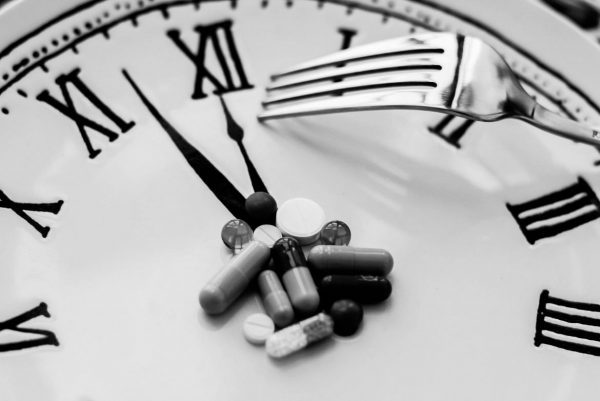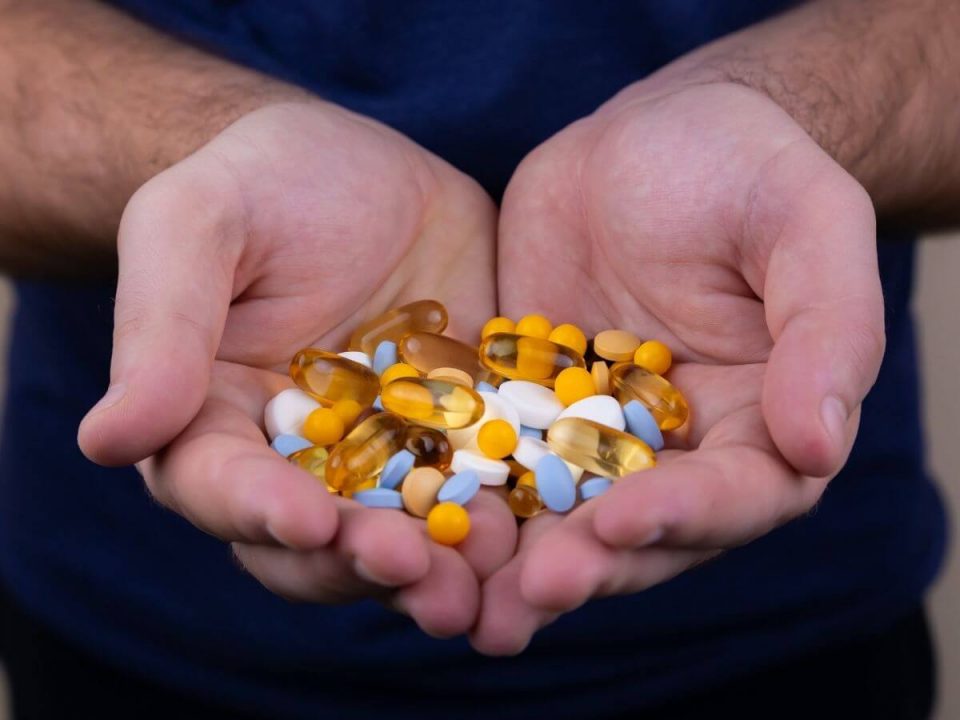Reports show that in the last few years there are more and more men taking testosterone supplements, their age range decreasing each year. Do men really need these supplements or is this another form of self-medication, taken based on false promises?
Table of Contents
 What is testosterone?
What is testosterone?
Testosterone is the hormone responsible for the development of male sexual characteristics, primarily produced by the testicles.
Besides sperm production, testosterone regulates a number of functions such as:
- sex drive
- bone mass
- fat distribution
- muscle size and strength
- blood cell production
 Testosterone imbalances: signs, symptoms and risks
Testosterone imbalances: signs, symptoms and risks
Specialists say that the main signs of low testosterone levels are:
- reduced sex drive
- erectile dysfunction
- low sperm count
- enlarged or swollen breast tissue
- less body hair
- lack of energy
- weight gain
- feelings of depression
- moodiness
- low self-esteem
Some of the causes are:
- Testicular injury
- Infection of the testicles
- Medications
- Disorders that affect the hormones
- Chronic disease, such as type 2 diabetes, kidney and liver disease, obesity, and HIV/AIDS
- Genetic diseases
- Alcoholism
On the other side, a high level of testosterone, which is much rarer, can lead to the triggering of puberty before the age of 9 years.
 Testosterone levels and ageing
Testosterone levels and ageing
It is natural for testosterone levels to decrease as man ages. After the age of 40, the concentration of circulating testosterone falls by about 1.6% every year for most men.
The low levels of testosterone lead to a diagnosis called hypogonadism by the age of 60, however this can affect younger men too. Approximately 4 in 10 men have hypogonadism by the time they are 45 years old.
Treatment
Testosterone levels can be determined by a simple blood test. Men’s normal testosterone levels range between 280 and 1,100 nanograms per deciliter (ng/dL). Usually a further investigation is needed if the level is below 300 ng/dL.
Even in the case of hypogonadism (reduced testosterone production), treatment is not always required as specialists say.
Testosterone replacement therapy
You might be recommended testosterone replacement therapy if the low testosterone level interferes with your health or quality of life. Artificial testosterone can be administered:
- Orally
- Through injection
- Gels
- Skin patches
 This type of treatment may bring great results such as greater muscle mass and a stronger sex drive, however it has a few side effects, including:
This type of treatment may bring great results such as greater muscle mass and a stronger sex drive, however it has a few side effects, including:
- Oily skin
- Fluid retention
- Testicle shrinking
- Decrease in sperm production
Pro-hormone supplements
There is a high number of pro-hormone supplements that promise to treat low levels of testosterone. However, there is little, if any, research to prove that these pro-hormone supplements can affect testosterone levels. In fact, they can have side effects such as boosting the estrogen, the female hormone.
Pro-hormone supplements can also cause imbalance in blood cholesterol, decreasing the levels of “good” cholesterol. Therefore, these supplements can be considered a poor, or even dangerous choice for boosting testosterone.
 Natural ways to boost testosterone
Natural ways to boost testosterone
The best way to increase or maintain your testosterone levels is by adopting a healthy lifestyle that can improve your overall health and wellbeing:
- Get enough sleep – make sleep a priority. People should sleep 7-8 hours each night.
- Follow a healthy diet – eating a nutritious diet can keep all hormone levels in the body balanced and promote optimal long-term health. The best diets are the ones that include mostly whole foods and offer a balance of fats, carbohydrates and proteins.
- Lose weight – it has been proved that men who carry more weight have lower levels of testosterone.
- Stay active – some studies show that physical activity is more beneficial than weight loss for improving testosterone levels.
- Reduce stress level.
- Review medication – prescribed medications represent one of the most common reasons for low testosterone. If you suspect a low testosterone level, bring it to your doctor’s attention.
- Avoid drugs and alcohol abuse.
Conclusion
It’s important to remember that testosterone levels decrease naturally over time. Before taking any testosterone supplements balance the expected benefits with the potential side effects.
Bear in mind that it is very common for low testosterone levels to come without any harmful physical effects which do not require treatment. Always speak with a medical professional to get confirmation if treatment is required.
